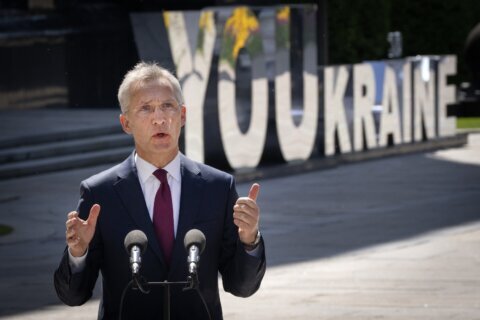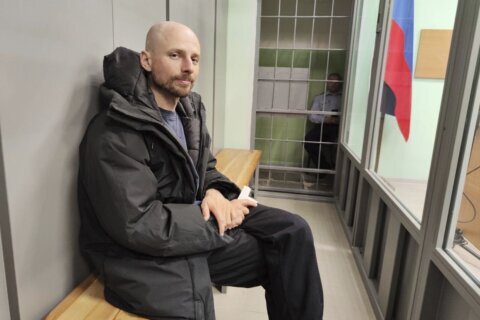TALLINN, Estonia (AP) — The prime ministers of the three Baltic countries agreed Thursday to speed up their nations’ disconnection from Russia’s power grid by nearly one year and connect with the continental European energy network by February 2025.
In a joint declaration, Kaja Kallas, Krisjanis Karins and Ingrida Simonyte – the leaders of Estonia, Latvia and Lithuania, respectively – pledged the countries would complete the decoupling as soon as the technical capacity was in place.
“The shifted geopolitical situation, resulting from the unprovoked invasion of Ukraine by the Russian Federation, has also significantly deteriorated the energy security situation in the region and increased the risks of unplanned de-synchronization of the Baltic states’ electricity systems” from the Russian grid, the three prime ministers said.
The Baltic countries, which used to be part of the Soviet Union, do not currently buy electricity from Russia but remain physically connected to the Russian power grid.
Estonia, Latvia, Lithuania and Poland agreed with the European Union’s executive commission in 2019 to coordinate on connecting the Baltic nations to the EU’s by the end of 2025.
However, Russia’s war in Ukraine led the three countries to work together to speed up the project.
The agreement announced Thursday represented a compromise. Lithuania had favored an energy exit in early 2024, citing Moscow’s unreliability and its aggression in Ukraine. Estonia’s government resisted a quicker cutoff, saying it lacked the required technical capabilities and might experience electricity blackouts if the transition happened too soon.
Copyright © 2024 The Associated Press. All rights reserved. This material may not be published, broadcast, written or redistributed.







